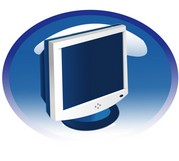-
基础教育
- 教材:
-
- 全部
- 中国地图出版社
- 人教版
- 人教版2012
- 人教版2013版
- 人教版PEP(3年级)
- 人教版义务
- 人教版新课标
- 人教版新起点(1年级)
- 人教版(Go for it)
- 人教版(三年级起点)
- 人教版(三年级起点)2012-2013
- 人教版(版本不明)
- 人教社2016年新编教材
- 冀教版
- 冀教版(三年级起点)
- 北京版
- 北师大版
- 北师大版(2016)
- 北师大版(1年级)
- 北师大版(3年级)
- 北师版2013
- 华东师大版
- 外研社版
- 外研社(三年级起点)
- 外研社(广西专用)
- 广州新版(三年级起点)
- 广州版
- 开心学英语
- 教育科学(3年级起点)
- 教育科学(广州版)
- 新华东师大版
- 新起点英语
- 朗文英语
- 河北版
- 湘少版(3年级起点)
- 牛津上海版
- 牛津上海版(深圳新版)
- 牛津英语
- 粤教版
- 苏教版
- 语文S版
- 语文版
- 首师大版
- 香港现代版
- 齐齐学英语
- 高等教育
- 职业教育
-
Sharing educational practice in edu-sharing 普通类
For technology-enhanced learning, the idea of learning objects transfers the technologies of content management, methods of software engineering and principles of open access to educational resources. This paper reports on CampusContent, a research project and competence centre for e-learning at FernUniversität in Hagen that designed and developed an integrated portal to a repository network named edu-sharing. This portal facilitates sharing, joint development and reuse of learning material and pedagogical knowledge. CampusContent focused on essential challenges concerning use and utility of learning objects and developed principles, methods and tools that support educators in the process of contextualising learning objects within educational settings. Our model offers three levels of contextualisation: configurable objects, learning scenarios and an integrated work environment for educators.
-
Are open educational resources systematic 普通类
Open educational resources (OER) raise many similar issues for education to those that have surrounded Learning Objects (LO). However the greater use and availability of digital technologies and open licensing seems to be enabling OER to have wider acceptance into individual and institutional teaching practice.While the need for appropriate design in teaching and learning on the part of educators, which was the primary driver of developments in LO, remains, the very openness of OER is changing the relationships between educators, learners and content (resources) and is becoming a primary agent of change. Experience in OpenLearn, a major initiative to provide OER from The Open University, indicates that some of these changes can be planned for while others will emerge as releasing content openly imposes evolutionary pressures that accelerate change and work around barriers. Development can then be driven by learner expectations of the technology and needs for informal life-long learning that in turn impact on how content is being designed and openly presented. It is argued that this represents a shift from a teacher-centric, systematic model of change in teaching practices as embodied in earlier ideas about LO to a learner-centric, systemic model of change as embodied in OER.
-
What kinds of knowledge do teachers share on blogs 普通类
In the era of Web 2.0, blogs are often used by educators as a tool to promote interaction within online communities. Related studies indicate the limitations of the knowledge sharing within teachers’ online communities (eg, Barab, MaKinster, Moor & Cunningham, 2001; Hou, Sung & Chang, 2009). The use of blogs for teachers’ professional development may promote teacher interaction and is an important issue that deserves exploration. In particular, what dimension and content of pedagogical knowledge are mainly shared on teachers’ blogs, and what are the limitations to interaction among teachers engaged in knowledge sharing? Examining the questions mentioned earlier will aid in the development of interactive strategies/tools for the promotion of teachers’ knowledge sharing on blogs (eg, using the observed limitations to provide advanced knowledge sharing interactive strategies or to help design automatic detecting/guiding modules for enhancing the knowledge interaction).
-
Open educational resources Conversations 普通类
Open educational resources reports on a series of online forums organised by the UNESCO International Institute for Educational Planning (IIEP) about open educational resources (oer) in 2005 and 2007. Here more than 600 participants from ninety countries report on oer history, achievements, issues and challenges from oer provider and user perspectives. The selection of approaches from developed and developing countries represents a broad range of perspectives and approaches.
-
pen technology open content and open knowledge 普通类
The book has four sections. Section 1 discusses lessons learned and challenges identified. Section 2 addresses research and development issues. Section 3 discusses motivational aspects and incentives. Section 4 addresses priority issues.
-
Elementary Preservice Teachers' perspective 普通类
This research investigates the perspectives of preservice teachers and their nave understandings of the kinds of learning and assistance video cases can provide in their methodology.
-
Informing Science a series of four books 普通类
Generally, oer is seen to have the potential of improving knowledge distribution world wide, when the issues mentioned are addressed. Communities of interest need to be formed to carry on the work in this direction. Furthermore, promotional activities to spread oer initiatives and usage are needed.
-
Learning objects and instructional design 普通类
Learning objects and instructional design
-
Applications implications and future directions 普通类
The discussion points and challenges raised are not the same for providers and users.The providers’ challenges include: suitable technologies, impact of oer, internal and external barriers, cross-organisational standards, involvement effort, appropriate use of oer, authorship, attribution, and incentives. Major issues of oer remain sustainabilityandintellectual property rights.
-
Handbook of research on learning design 普通类
Generally, oer is seen to have the potential of improving knowledge distribution world wide, when the issues mentioned are addressed. Communities of interest need to be formed to carry on the work in this direction. Furthermore, promotional activities to spread oer initiatives and usage are needed.

